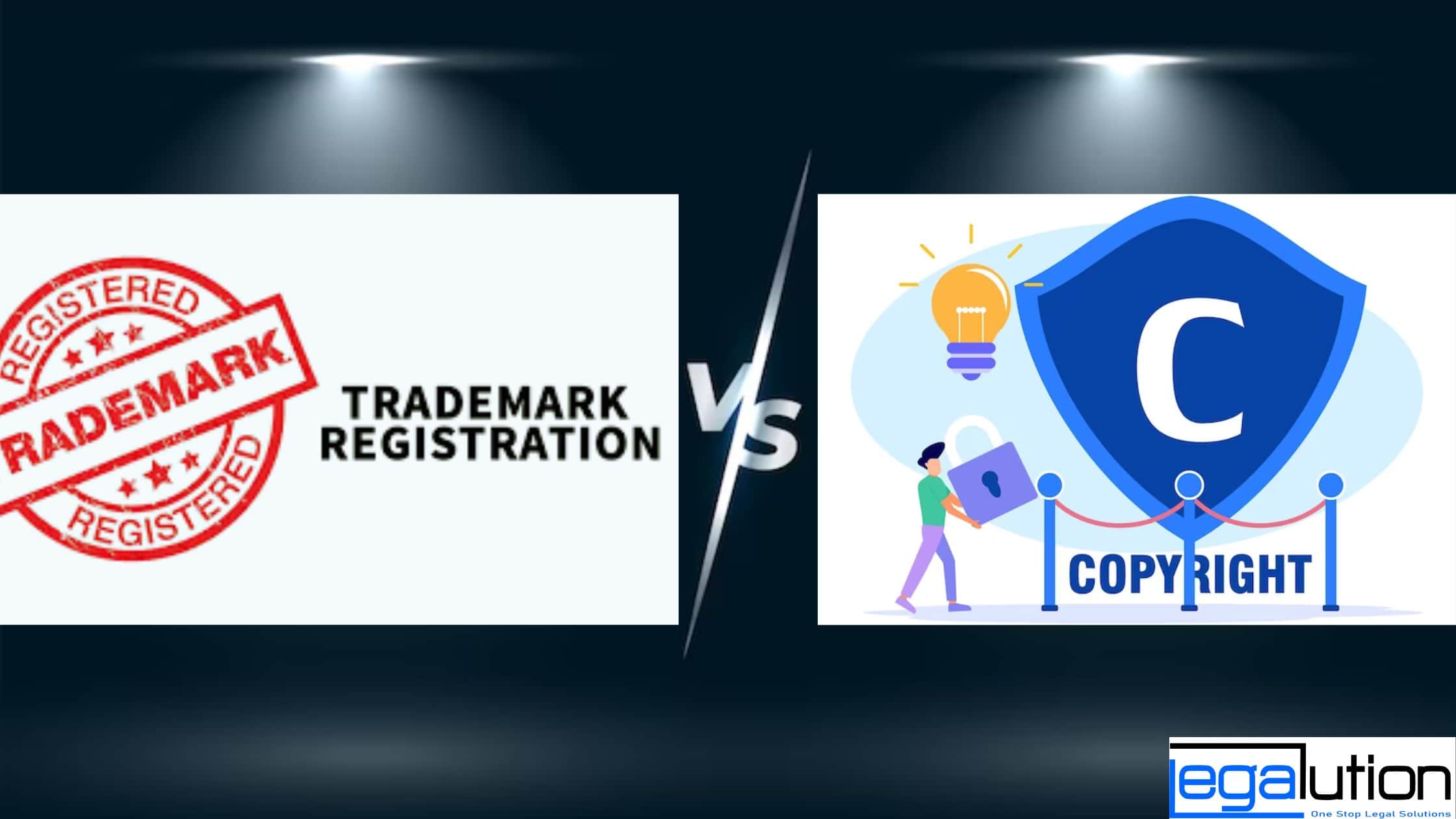
A Quick Guide on Trademark vs Copyright Registration
In today’s fast-paced business environment, where competition is fierce and innovation is constant, protecting your brand, creative work has never been more crucial. Trademark registration and copyright registration are essential legal processes that ensures intellectual property rights protection. They serve different purposes and cover distinct types of creative work. This legal concept not only grants you exclusive rights to your brand or creative businesses but also provides numerous benefits that can give your business a significant advantage.
In this article, we shall understand the differences between trademark and copyright registrations which one is right for your intellectual property as well for your work or business.
Table of Contents
ToggleUnderstanding Trademark Registration
A trademark is a unique symbol, word, phrase, design, or combination thereof that distinguishes your products or services from those of others in the marketplace. Trademark registration is the process of legally establishing and protecting these marks with the government, granting you exclusive rights to use them in connection with your goods or services. In essence, it acts as a shield that prevents others from using your brand identity to their advantage.
The Benefits of Trademark Registration
- Legal Protection:
The primary advantage of trademark registration is the legal protection it offers. Registered trademarks provide you with the exclusive right to use the mark in connection with the goods or services specified in the registration. This means you can take legal action against anyone who attempts to use a confusingly similar mark, protecting your brand’s reputation and market share.
- National and International Recognition:
Trademark registration provides you with nationwide protection in the country where it’s registered. Moreover, if you plan to expand your business internationally, a registered trademark can serve as a basis for seeking protection in other countries through treaties and agreements.
- Brand Recognition and Trust:
A registered trademark enhances brand recognition and instils trust in consumers. When customers see a registered trademark, they associate it with a certain level of quality and reliability. This can lead to increased customer loyalty and brand value.
- Exclusive Use: Trademark registration ensures that you have the exclusive right to use your mark in your industry. This prevents competitors from capitalizing on your brand’s success and diluting your brand’s uniqueness.
- Licensing and Brand Expansion:
Registered trademarks can be licensed or franchised, allowing you to generate additional revenue by permitting others to use your brand while maintaining control over its quality and reputation. This opens up opportunities for brand expansion and growth.
- Legal Remedies:
In case of trademark infringement, having a registered trademark provides you with a stronger legal position. It allows you to seek damages, injunctive relief, and other legal remedies against infringing parties.
Understanding Copyright Registration:
In today’s digital age, creative individuals and businesses invest significant time and resources into producing original content, art, music, and literature. Protecting these intellectual properties from unauthorized use or reproduction is paramount. One of the essential tools available for safeguarding your creative works is copyright registration
Copyright Registration: Introduction
Copyright is a form of intellectual property protection granted to the creators of original works of authorship.
This protection extends to a wide range of creative works, including but not limited to books, music, software, films, photographs, and artwork.
Under copyright law, the creator or author is automatically granted certain exclusive rights to their work upon creation. However, registering your copyright with the appropriate government authority provides additional legal benefits and protections.
Process of Copyright Registration:
- Creation of Original Work: Before you can register a copyright, you must first create an original work that qualifies for copyright protection.
- Filing an Application: You will need to file a copyright registration application with the relevant government authority, such as the Copyright Office in India. The application will require you to provide detailed information about your work and pay a filing fee as per your creative work.
- Review and Approval: The Copyright Office will then review your application to ensure it meets all the necessary requirements. This process may take several months, depending on the workload of the office.
- Issuance of Registration: Once your application is approved, you will receive a copyright registration certificate, providing legal evidence of your ownership and exclusive rights to the work.
Benefits of Copyright Registration
- Legal Protection: Copyright registration offers legal proof of your ownership and exclusive rights to your creative work. This can be crucial in cases of copyright infringement, allowing you to take legal action against violators.
- Statutory Damages and Attorney’s Fees: Registered copyright holders have the advantage of seeking statutory damages and attorney’s fees in infringement cases, which can significantly increase the potential compensation in legal disputes.
- Public Notice: Copyright registration makes your work a matter of public record. This public notice can deter potential infringers and make it easier for others to find and request permission to use your work.
- International Protection: Registered copyrights can be enforced in other countries through international treaties, providing global protection for your creative works.
- Evidence of Ownership: A copyright registration certificate serves as undeniable evidence of your ownership, making it easier to license or transfer your rights to others.
Conclusion
Thus, to sum up we can say whether you’re a start-up or an established business, investing in trademark and copyright registration is a strategic move that can pay dividends in the long run.
To navigate this complex process successfully, consider consulting with a qualified intellectual property attorney like who can guide you through the intricacies of trademark registration online.
Your brand and creative work is an asset worth protecting, and intellectual property rights is the key. In a world where creative works are increasingly vulnerable to unauthorized use and distribution, copyright registration stands as a powerful tool for safeguarding the fruits of your creativity.



